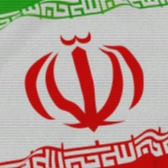-
FBI: Iranian hackers lurked in Albania’s govt network for 14 months
The Federal Bureau of Investigation (FBI) and CISA said that one of the Iranian threat groups behind the destructive attack on the Albanian government's network in July lurked inside its systems for roughly 14 months.
- September 21, 2022
- 02:44 PM
 0
0
-
The Week in Ransomware - September 16th 2022 - Iranian Sanctions
It has been a fairly quiet week on the ransomware front, with the biggest news being US sanctions on Iranians linked to ransomware attacks.
- September 16, 2022
- 04:26 PM
 0
0
-
US govt sanctions ten Iranians linked to ransomware attacks
The Treasury Department's Office of Foreign Assets Control (OFAC) announced sanctions today against ten individuals and two entities affiliated with Iran's Islamic Revolutionary Guard Corps (IRGC) for their involvement in ransomware attacks.
- September 14, 2022
- 11:43 AM
 0
0
-
Hackers now use ‘sock puppets’ for more realistic phishing attacks
An Iranian-aligned hacking group uses a new, elaborate phishing technique involving multiple personas and email accounts to lure targets into opening malicious documents.
- September 13, 2022
- 05:23 PM
 0
0
-
US sanctions Iran’s Ministry of Intelligence over Albania cyberattack
The U.S. Treasury Department announced sanctions today against Iran's Ministry of Intelligence and Security (MOIS) and its Minister of Intelligence for their role in the July cyberattack against the government of Albania, a U.S. ally and a NATO member state.
- September 09, 2022
- 12:35 PM
 0
0
-
Microsoft: Iranian hackers encrypt Windows systems using BitLocker
Microsoft says an Iranian state-sponsored threat group it tracks as DEV-0270 (aka Nemesis Kitten) has been abusing the BitLocker Windows feature in attacks to encrypt victims' systems.
- September 08, 2022
- 11:30 AM
 2
2
-
New Iranian hacking group APT42 deploys custom Android spyware
A new Iranian state-sponsored hacking group known as APT42 has been discovered using a custom Android malware to spy on targets of interest.
- September 07, 2022
- 10:18 AM
 0
0
-
Albania blames Iran for July cyberattack, severs diplomatic ties
Albanian Prime Minister Edi Rama announced on Wednesday that the entire staff of the Embassy of the Islamic Republic of Iran was asked to leave within 24 hours.
- September 07, 2022
- 08:37 AM
 0
0
-
Microsoft: Iranian hackers still exploiting Log4j bugs against Israel
Hackers continue to exploit the Log4j vulnerability in vulnerable applications, as shown by the Iranian 'MuddyWater' threat actor who was found targeting Israeli organizations using the SysAid software.
- August 26, 2022
- 10:31 AM
 0
0
-
Google: Iranian hackers use new tool to steal email from victims
State-sponsored Iranian hacking group Charming Kitten has been using a new tool to download email messages from targeted Gmail, Yahoo, and Microsoft Outlook accounts.
- August 23, 2022
- 07:00 AM
 0
0
-
The Week in Ransomware - August 5th 2022 - A look at cyber insurance
For the most part, it has been a quiet week on the ransomware front, with a few new reports, product developments, and attacks revealed.
- August 05, 2022
- 05:35 PM
 0
0
-
Hackers pose as journalists to breach news media org’s networks
Researchers following the activities of advanced persistent (APT) threat groups originating from China, North Korea, Iran, and Turkey say that journalists and media organizations have remained a constant target for state-aligned actors.
- July 16, 2022
- 11:07 AM
 0
0
-
Privacy protection agency seizes servers of hacked travel company
The Privacy Protection Authority in Israel seized servers hosting multiple travel booking websites because their operator failed to address security issues that enabled data breaches affecting more than 300,000 individuals.
- July 03, 2022
- 03:34 PM
 0
0
-
Iranian hackers target energy sector with new DNS backdoor
The Iranian Lycaeum APT hacking group uses a new .NET-based DNS backdoor to conduct attacks on companies in the energy and telecommunication sectors.
- June 10, 2022
- 02:06 PM
 0
0
-
Microsoft disrupts Bohrium hackers’ spear-phishing operation
The Microsoft Digital Crimes Unit (DCU) has disrupted a spear-phishing operation linked to an Iranian threat actor tracked as Bohrium that targeted customers in the U.S., Middle East, and India.
- June 03, 2022
- 11:24 AM
 0
0
-
Iranian hackers exposed in a highly targeted espionage campaign
Threat analysts have spotted a novel attack attributed to the Iranian hacking group known as APT34 group or Oilrig, who targeted a Jordanian diplomat with custom-crafted tools.
- May 12, 2022
- 05:30 PM
 0
0
-
Hackers exploit critical VMware RCE flaw to install backdoors
Advanced hackers are actively exploiting a critical remote code execution (RCE) vulnerability, CVE-2022-22954, that affects in VMware Workspace ONE Access (formerly called VMware Identity Manager).
- April 26, 2022
- 08:51 AM
 0
0
-
US and UK expose new malware used by MuddyWater hackers
US and UK cybersecurity and law enforcement agencies today shared info on new malware deployed by the Iranian-backed MuddyWatter hacking group in attacks targeting critical infrastructure worldwide.
- February 24, 2022
- 12:56 PM
 0
0
-
Iranian hackers target VMware Horizon servers with Log4j exploits
An Iranian-aligned hacking group tracked as TunnelVision was spotted exploiting Log4j on VMware Horizon servers to breach corporate networks in the Middle East and the United States.
- February 18, 2022
- 02:55 PM
 0
0
-
Cyberspies linked to Memento ransomware use new PowerShell malware
An Iranian state-backed hacking group tracked as APT35 (aka Phosphorus or Charming Kitten) is now deploying a new backdoor called PowerLess and developed using PowerShell.
- February 01, 2022
- 02:00 PM
 0
0
























